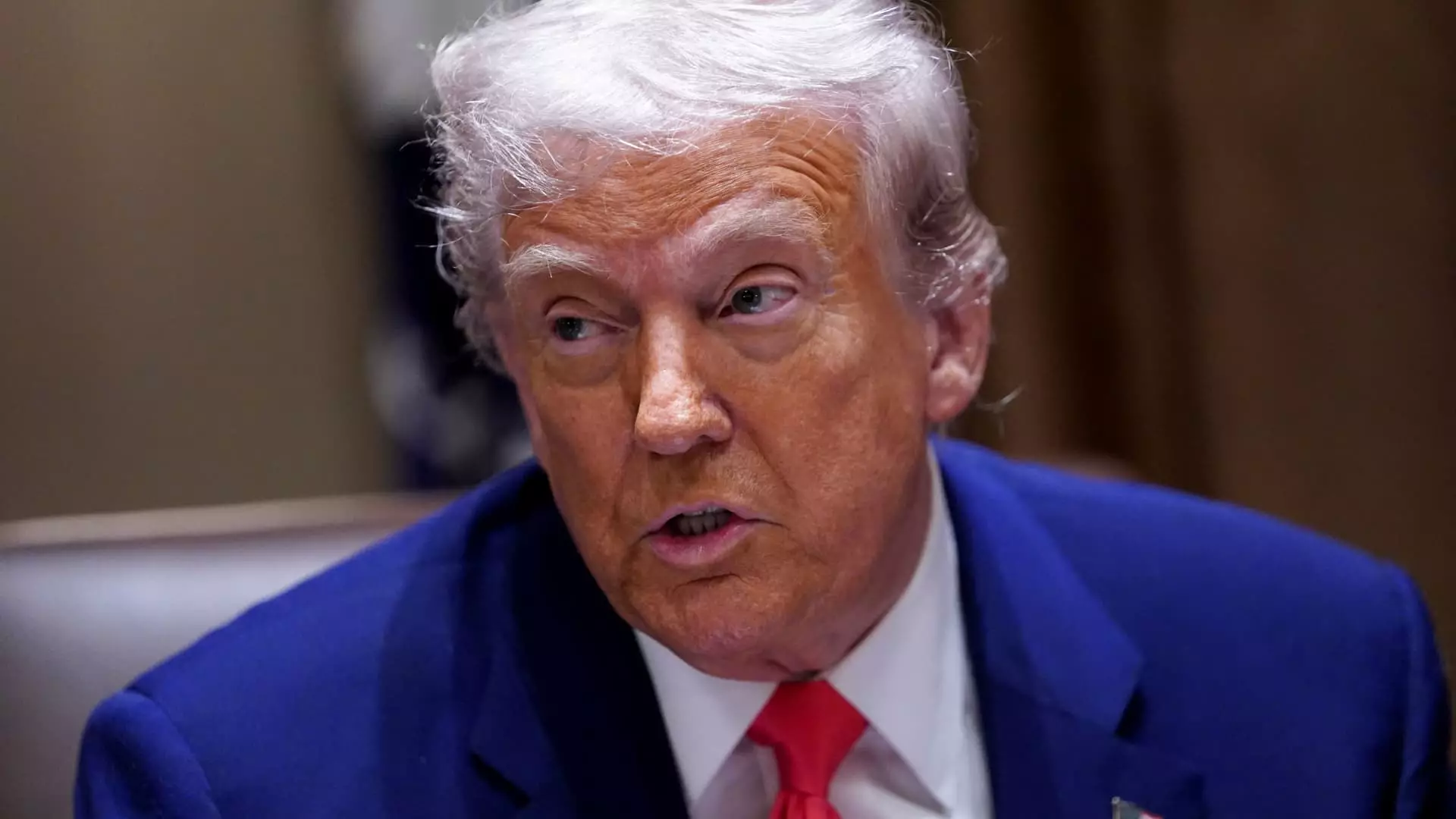President Donald Trump’s recent tariff increase on Chinese imports has sent shockwaves through the financial landscape, putting the very fabric of U.S.-China trade relations in jeopardy. Economists are sounding alarms, warning that these moves may herald the end of substantive economic exchanges between the two nations. Erica York, vice president of federal tax policy at the Tax Foundation’s Center for Federal Tax Policy, asserts that a tariff exceeding 100% often leads to the severing of most trade ties. With the current tariffs sitting at an astonishing 145%, it’s clear that we are not just on the brink of a trade war—rather, we’re already engulfed in one.
York’s analysis is a wake-up call. The almost certain outcome of such punitive economic measures is not just increased costs for businesses, but also a dramatic shift in the market’s stability. The effects are evident: after the announcement of these tariffs, the stock market experienced significant declines, wiping out gains that had once seemed secure. Investors and businesses alike are left reeling, caught in a storm of economic uncertainty fueled by rapidly escalating tariffs.
When Protectionism Goes Overboard
Trump’s administration has undeniably ushered in the most protectionist era in recent history. During a Cabinet meeting, the President hinted at the possibility of extending a 90-day tariff reprieve for countries other than China, but this is nothing more than a Band-Aid on a gaping wound. While short-term relief may temporarily mollify some concerns, the long-term implications of maintaining such high tariffs against China are dire. The baseline tariffs, even with the 10% reprieve, signal a commitment to what can only be described as economic folly.
York vividly painted the picture of what this means for consumers and businesses in the U.S. In essence, these tariffs do not just penalize imports from China; they impose significant financial burdens on American families who rely on affordable goods sourced from abroad. With projections indicating potential economic losses and significant increases in consumer prices, it’s hard to ignore the reality that the average American might end up footing the bill for this misguided fiscal strategy.
The Revenue Myth: Are Tariffs Really Beneficial?
The Tax Foundation estimates a staggering increase in federal tax revenues attributed to these tariffs, amounting to $171.6 billion this year. It’s crucial to peel back the layers of this assertion. While it sounds appealing in terms of government revenues, the overarching narrative is one of devastating costs projected to ripple across the economy. Economists have long pointed out that tariffs act as a hidden tax on consumers. The losses incurred may well overshadow any temporary gains in revenue from increased tariffs.
It’s important to understand that this revenue generation comes at the expense of economic stability and consumer welfare. With a protectionist approach that echoes practices from bygone eras, the country risks alienating trading partners and stifling economic growth. The increased costs for businesses may lead to cuts in jobs, slowdowns in production, and, ultimately, a loss of consumer confidence that could shock the market.
The Global Implications of Isolationism
China’s unwavering stance in the face of escalating tariffs indicates a readiness for protracted conflict, with retaliatory levies now sitting at 84%. This tit-for-tat approach does little to benefit either economy, instead fostering an environment of distrust and hostility. The notion that such trade wars could yield favorable outcomes for the U.S. economy is increasingly suspect. In the age of global interdependence, isolationism is a short-sighted and largely ineffective strategy.
Trade wars do not just affect bilateral relations; they have far-reaching impacts on global supply chains. As industries face disruptions, the world watches as the U.S. potentially isolates itself from vital partnerships. Countries that once viewed the U.S. as a key ally may begin to shift their focus, seeking new partners to engage with economically. The consequences are not merely national but global, leaving the U.S. to navigate a complex web of international economics with limited influence.
In an ever-evolving global market, clinging to a protectionist agenda spells disaster. The long-term impacts of Trump’s tariff policies could reshape the economic landscape for generations, favoring short-term gain over sustainable prosperity. The critical question remains: will this administration reverse course before it’s too late? As the clock ticks, the U.S. economy stands at a precarious crossroad.

